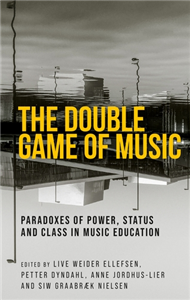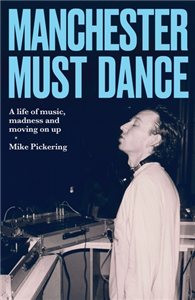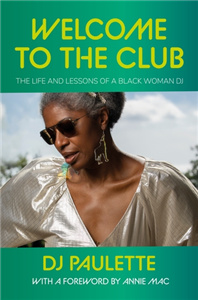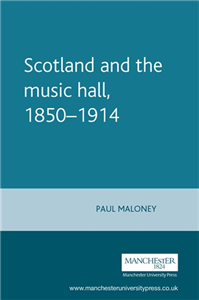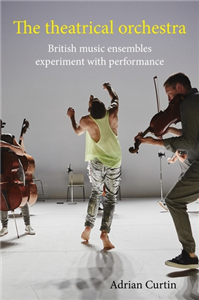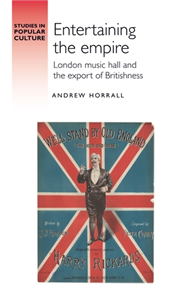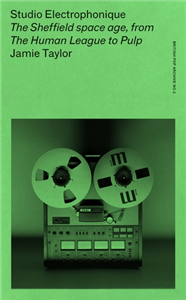Your Search Results
-
Naxos Deutschland Musik & Video Vertriebs GmbH
About Naxos licensing service As the world's leading classical music label, we can offer you an unparalleled range of repertoire for licensing. Our continuously-expanding catalogue now contains over 750,000 tracks, all of the highest artistic standard, all in state-of-the-art digital sound and many critically-acclaimed. From Early music to Opera, from Medieval to Post-Modern, from Bach to Wagner, Naxos has it. And because we own our recordings outright we can clear the right overnight without involving third parties. Are you looking for unique music for your project? We are offering a complete service from your initial concept to the finished product. Julia Brunzlow eMail: jb@naxos.de Tel.: 0171-3312975 Julia Gärtner eMail: jg@naxos.de Tel.: 08121-2500747 Web: www.naxoslicensing.com
View Rights Portal
-
Promoted ContentThe ArtsDecember 2025
The double game of music
Paradoxes of power, status and class in music education
by Live Weider Ellefsen, Petter Dyndahl, Anne Jordhus-Lier, Siw Graabræk Nielsen
The double game of music imagines music education as a series of games - each with its own rules, play currency and players - to challenge readers to rethink the significance of music and musical upbringing in shaping social structures. Drawing on their own empirical research and a wide range of international contributions, the authors unravel the intertwining of social positioning and power hierarchies with players beliefs in the pure values and virtues of their games, whether these relate to parenting, children's play, schooling, academic pursuits, musical leisure activities or the television and music industries. In a world where music is often celebrated as an important tool for inclusion and democratisation, this groundbreaking book offers a timely critique, revealing complexities and contradictions that tend to be overlooked by teachers, researchers, politicians and others interested in the powers of music education.
-
Promoted ContentBiography & True StoriesMarch 1905
Chopin: The Man and His Music
by James Huneker
Chopin: The Man and His Music reflects the intimate, thorough knowledge of Chopin's music that Huneker acquired while studying to be a concert pianist and his unusually keen insight into the character of the great Polish composer whose music he adored.
-
 Trusted Partner
Humanities & Social SciencesMay 2009
Trusted Partner
Humanities & Social SciencesMay 2009Crisis music
The cultural politics of Rock Against Racism
by Ian Goodyer
Marching to the beat of punk rock and reggae, Rock Against Racism was a mass movement built in opposition to racism and fascism in 1970s Britain. At a time of severe economic and social crises, RAR, alongside the Anti-Nazi League, organised one of the biggest and most effective political and cultural mobilisations of the post-war period. Expressing itself through spectacular carnivals, concerts, marches and innovative forms of design and communication, RAR combined hard-headed political organisation with the optimism and energy of radical youth culture. Drawing on interviews with activists, supporters and critics, and based on the latest research, Crisis music explores the nature of this ground-breaking politico-cultural phenomenon. The author explains why RAR seized upon the power and passion of punk and reggae, and how this has helped to shape the boundaries of modern popular music. He also offers, for the first time, a clear picture of the relationship between RAR and its main political sponsor, the Socialist Workers Party. Crisis music discusses RAR's place within the left's often-troubled encounters with popular culture, and draws comparisons with other music-based movements and campaigns, such as the post-war folk revival and Live 8. This book casts light on numerous current debates: about 'celebrity politics' and the role of musicians as political spokespeople, for instance, and the links between ethnicity, popular culture and politics. It will be of value to students and researchers in cultural studies, politics and labour history, and to anyone interested in the role of culture in political activity. ;
-
 Trusted Partner
Trusted Partner
-
 Trusted Partner
Humanities & Social SciencesMarch 2017
Trusted Partner
Humanities & Social SciencesMarch 2017Imperialism and music
by Andrew Thompson, John M. MacKenzie, Kim Latham
This study considers the relationship between British imperialism and music. With its unique ability to stimulate the emotions and to create mental images, music was used to dramatize, illustrate and reinforce the components of the ideological cluster that constituted British imperialism in its heyday: patriotism, monarchism, hero-worship, Protestantism, racialism and chivalry. It was also used to emphasise the inclusiveness of Britain by stressing the contributions of England, Scotland, Wales and Ireland to the imperial project.
-
 Trusted Partner
Literature & Literary StudiesJanuary 2026
Trusted Partner
Literature & Literary StudiesJanuary 2026Fantasies of music in nostalgic medievalism
by Helen Dell
-
 Trusted Partner
Literature & Literary StudiesFebruary 2023
Trusted Partner
Literature & Literary StudiesFebruary 2023Imagining the Irish child
Discourses of childhood in Irish Anglican writing of the seventeenth and eighteenth centuries
by Jarlath Killeen
This book examines the ways in which ideas about children, childhood and Ireland changed together in Irish Protestant writing of the seventeenth and eighteenth centuries. It focuses on different varieties of the child found in the work of a range of Irish Protestant writers, theologians, philosophers, educationalists, politicians and parents from the early seventeenth century up to the outbreak of the 1798 Rebellion. The book is structured around a detailed examination of six 'versions' of the child: the evil child, the vulnerable/innocent child, the political child, the believing child, the enlightened child, and the freakish child. It traces these versions across a wide range of genres (fiction, sermons, political pamphlets, letters, educational treatises, histories, catechisms and children's bibles), showing how concepts of childhood related to debates about Irish nationality, politics and history across these two centuries.
-
 Trusted Partner
Humanities & Social SciencesMarch 2017
Trusted Partner
Humanities & Social SciencesMarch 2017Child, nation, race and empire
Child rescue discourse, England, Canada and Australia, 1850–1915
by Margot Hillel, Shurlee Swain, Andrew Thompson, John M. MacKenzie
Child, nation, race and empire is an innovative, inter-disciplinary, cross cultural study that contributes to understandings of both contemporary child welfare practices and the complex dynamics of empire. It analyses the construction and transmission of nineteenth-century British child rescue ideology. Locating the origins of contemporary practice in the publications of the prominent English Child rescuers, Dr Barnardo, Thomas Bowman Stephenson, Benjamin Waugh, Edward de Montjoie Rudolf and their colonial disciples and literature written for children, it shows how the vulnerable body of the child at risk came to be reconstituted as central to the survival of nation, race and empire. Yet, as the shocking testimony before the many official enquiries into the past treatment of children in out-of-home 'care' held in Britain, Ireland, Australia and Canada make clear, there was no guarantee that the rescued child would be protected from further harm.
-
 Trusted Partner
Literature & Literary StudiesJuly 2015
Trusted Partner
Literature & Literary StudiesJuly 2015Monsters and the poetic imagination in The Faerie Queene
by Maik Goth
-
 Trusted Partner
2021
Trusted Partner
2021Self-medication
Guidelines for providing pharmaceutical advice
by Dr. Kirsten Lennecke and Kirsten Hagel
Minor illness or a serious disease ? Through systematic questioning, pharmacists or pharmaceutical technicians can establish the possibilities and limits of self-medication. Each monograph on the over 100 indications for self-medication includes: - A flow chart: basis for the structured consultation - A brief description: additional information about the symptoms - Recommended medications/groups of medications: the treatment options - Additional advice: individual supportive and alternative treatment options - Specific knowledge for advising particular patient groups: e.g. pregnant women, children and senior citizens New for the 7th edition: Monographs that explore the possibilities of supportive self-medication for indications such as hypertension and diabetes. Information about what to do in the case of poisoning, scabies or inflammation of the nail bed (paronychia) is also provided! The details about active substances, products and additional tips have been updated. The pocket guide has long been the standard for providing advice on self-medication – a “must-have”!
-
 Trusted Partner
March 2025
Trusted Partner
March 2025Arts and Medicine
How music, painting, theatre, dance, literature and architecture heal
by Stefan N. Willich
Art, medicine and health have many points of contact and a long tradition. Even in Greek mythology, Apollo was the god of the arts. Artistic approaches to therapy (including visual and performing arts, music, dance and literature) have been used for many centuries and are still offered in some medical institutions today. Despite this long practical experience, there is little scientific evidence of its effectiveness. Basic research provides an important basis for art therapy with interesting new approaches for investigating possible mechanisms of action. In addition, the overall social signifi- cance of art for health is an important topic, especially with regard to preventive effects for the population. The book provides a comprehensive overview of how art can be used as a health-promoting resource and highlights various research approaches. In addition, a brief review of the historical development of art in medicine is given. For the first time, the influence of music, painting, dance, literature and architecture on people’s state of health and the healing effect they can have is shown. Target group: Art therapists, artists, psychotherapists, child and adolescent psychologists, psychoanalysts and psychologists, health professionals, music and dance therapists, art and music educators, community musicians
-
 Trusted Partner
Biography & True StoriesApril 2026
Trusted Partner
Biography & True StoriesApril 2026Manchester must dance
A life of music, madness and moving on up
by Mike Pickering, Paul Morley
From Manchester's backstreets to global dancefloors - the untold story of a musical pioneer. Beginning on the night in November 1963 when his mum took him to see the Beatles live at Manchester's ABC Cinema, Mike Pickering takes the reader through sixty years of clubs, clothes, gigs, record labels, football matches and politics. Pickering has lived through decades of rapid change in popular music. As an influential DJ he introduced house music into the legendary Haçienda. He signed Happy Mondays and James to Factory Records before working with Kasabian, Gossip and Calvin Harris at Sony. His Mercury Prize-winning, multi-million-selling group M People transformed the music industry's attitude to dance music. As he tells his remarkable story he introduces an array of friends and collaborators, many of whom would become important - and sometimes notorious - figures in music history. Manchester must dance is a revelatory insider's account that moves from the cramped back streets of 1950s north Manchester on a journey deep into music, the city and the wider world. It features forewords from some of those Pickering inspired: Martin Fry, Johnny Marr, Noel Gallagher and Calvin Harris.
-
 Trusted Partner
Business, Economics & LawJanuary 2024
Trusted Partner
Business, Economics & LawJanuary 2024Welcome to the club
The life and lessons of a Black woman DJ
by DJ Paulette
In Welcome to the club, Manchester legend DJ Paulette shares the highs, lows and lessons of a thirty-year music career, with help from some famous friends. One of the Haçienda's first female DJs, Paulette has scaled the heights of the music industry, playing to crowds of thousands all around the world, and descended to the lows of being unceremoniously benched by COVID-19, with no chance of furlough and little support from the government. Here she tells her story, offering a remarkable view of the music industry from a Black woman's perspective. Behind the core values of peace, love, unity and respect, dance music is a world of exclusion, misogyny, racism and classism. But, as Paulette reveals, it is also a space bursting at the seams with powerful women. Part personal account, part call to arms, Welcome to the club exposes the exclusivity of the music industry while seeking to do justice to the often invisible women who keep the beat going.
-
 Trusted Partner
The ArtsMay 2003
Trusted Partner
The ArtsMay 2003Scotland and the music hall, 1850–1914
by Paul Maloney, Jeffrey Richards
Music hall reflected the lifestyles and preoccupations of working people in a way that only television in the modern era has done since. While London dominated the wider British music hall, Glasgow was the centre of a vigorous Scottish performing culture developed in a Presbyterian society with a very different experience of industrial urbanisation. This book explores all aspects of the Scottish music hall industry, from the lives and professional culture of performers and impresarios to the place of music hall in Scottish life. It explores issues of national identity in terms of Scottish audiences' responses to the promotion of imperial themes in songs and performing material, and in the version of Scottish identity projected by Lauder and other kilted acts at home and abroad. ;
-
 Trusted Partner
The ArtsApril 2025
Trusted Partner
The ArtsApril 2025The theatrical orchestra
British music ensembles experiment with performance
by Adrian Curtin
The Theatrical Orchestra analyses experimental performances by British music ensembles in the twenty-first century. Orchestras are reconceiving how concerts are programmed and presented, how musicians perform, where performance can occur, and the role of the audience in the co-creation of the live event. They are embracing theatricality, thereby realising music more fully as a multi-sensory performance art. This book explains how and why orchestras are thinking theatrically about performance, and uses the work of British music ensembles as exemplars. It analyses performances by Aurora Orchestra, London Contemporary Orchestra, London Sinfonietta, Manchester Collective, Multi-Story Orchestra, Paraorchestra, Scottish Ensemble, and Southbank Sinfonia. The book bridges musicology and theatre studies to analyse the theatrical orchestra on the concert stage and beyond, addressing such topics as visuality, storytelling, physical performance, site-engaged performance, and immersive performance.
-
 Trusted Partner
Literature & Literary StudiesMarch 2019
Trusted Partner
Literature & Literary StudiesMarch 2019Monsters and the poetic imagination in The Faerie Queene
by Maik Goth, J. B. Lethbridge
-
 Trusted Partner
Humanities & Social SciencesOctober 2025
Trusted Partner
Humanities & Social SciencesOctober 2025Entertaining the empire
London music hall and the export of Britishness
by Andrew Horrall
The stage entertainments known as music hall emerged in mid-Victorian London just as the British began colonising large parts of the world.Settlers recreated this metropolitan popular culture throughout the empire and in places under foreign control. They erected music halls resembling those at home, imported songs and sketches, performed inamateur shows and watched touring professionals. London originals were rewritten as commentaries on local conditions. This activity transformed music hall into a marker of an exclusionary British identity overseas and made colonies look and sound more like Britain. The result was that settlers separated by vast distances were linked by a shared popular culture. The touring circuits and cultural affinities the Victorians created endure to this day.
-
 Trusted Partner
The ArtsApril 2025
Trusted Partner
The ArtsApril 2025Studio Electrophonique
The Sheffield space age, from The Human League to Pulp
by Jamie Taylor
The amazing story of the home studio that helped launch some of Britain's most beloved bands. The Sheffield space age began in 1961, when local mechanic Ken Patten won a tape-recording competition by recreating the sound of a rocket launch using a pencil and a bicycle pump. In the decades that followed, the makeshift home studio he constructed became the launch pad for a group of young musicians who would shape the futuristic sound of 1980s pop. The Human League, Heaven 17, Pulp, ABC and others made their early recordings with Ken, whose DIY ethic was the perfect fit for a city facing industrial decline but teeming with ideas. Studio Electrophonique tells the story of a generation seeking new frontiers in music, using everything they could lay their hands on - from science fiction novels to glam rock, Dada art and cheap electronics - to get there. Drawing on original interviews with Jarvis Cocker, Martyn Ware, Mark White and others, it brings to light a world of humour, charm, creativity and unfounded yet undaunted self-belief.
-
 Trusted Partner
Film theory & criticismOctober 2013
Trusted Partner
Film theory & criticismOctober 2013The child in Spanish cinema
by Sarah Wright
In this, the first full-length treatment of the child in Spanish cinema, Sarah Wright explores the ways that the cinematic child comes to represent 'prosthetic memory'. The central theme of the child and the monster is used to examine the relationship of the self to the past, and to cinema. Concentrating on films from the 1950s to the present day, the book explores religious films, musicals, 'art-house horror', science-fiction, social realism and fantasy. It includes reference to Erice's The Spirit of The Beehive, del Toro's Pan's Labyrinth, Mañas's El Bola and the Marisol films. The book also draws on a century of filmmaking in Spain and intersects with recent revelations concerning the horrors of the Spanish past. The child is a potent motif for the loss of historical memory and for its recuperation through cinema. This book is suitable for scholars and undergraduates working in the areas of Spanish cinema, Spanish cultural studies and cinema studies.
-
 Trusted Partner
2020
Trusted Partner
2020Anthroposophic Medicine
Medicinal therapy for 350 disease pictures
by Edited by Dr. Matthias Girke,Dr. Michaela Glöckler and Georg Soldner
100 years after it was founded in Switzerland, anthroposophic medicine is nowadays an approach to treatment that is used worldwide. In this jubilee edition, 39 general practitioners and specialists experienced in anthroposophic therapy describe 350 disease pictures and their medicinal treatment – including Covid-19 – in understandable therapeutic concepts.




